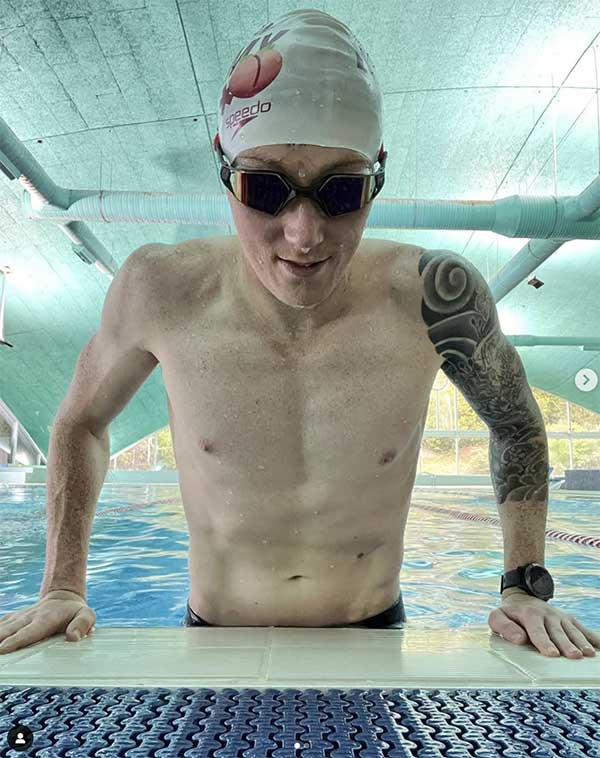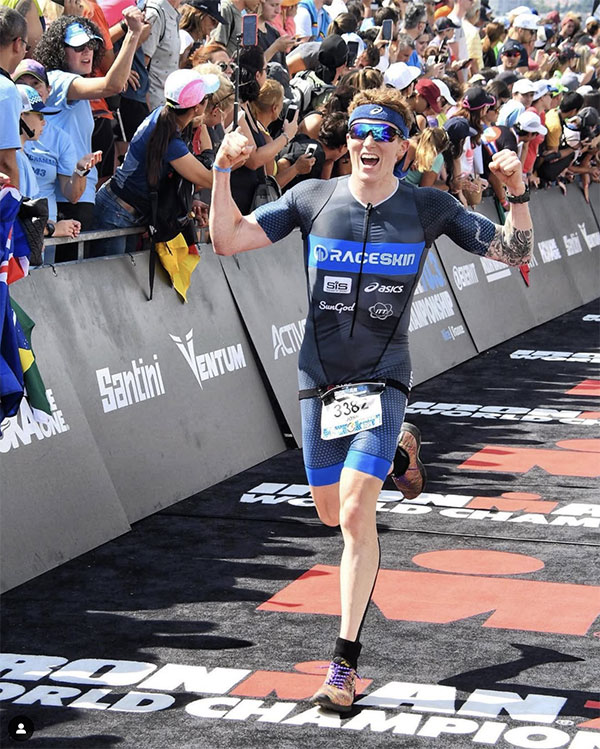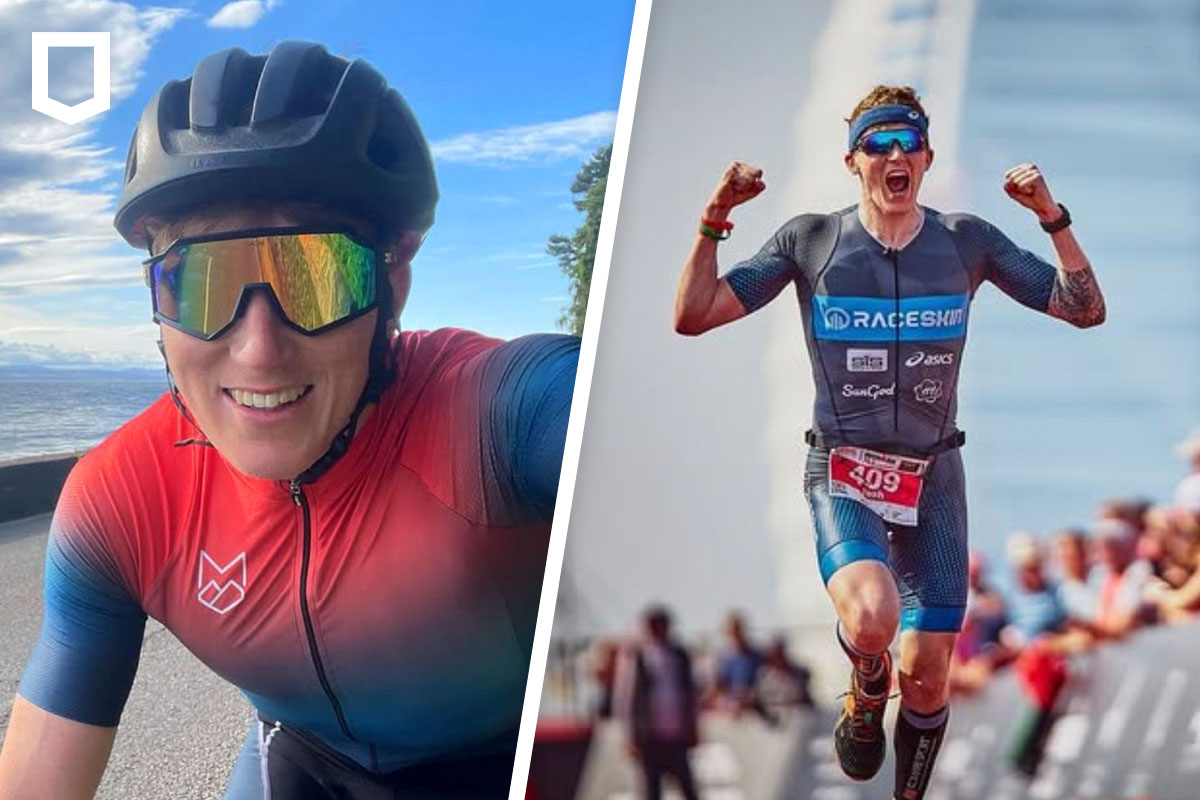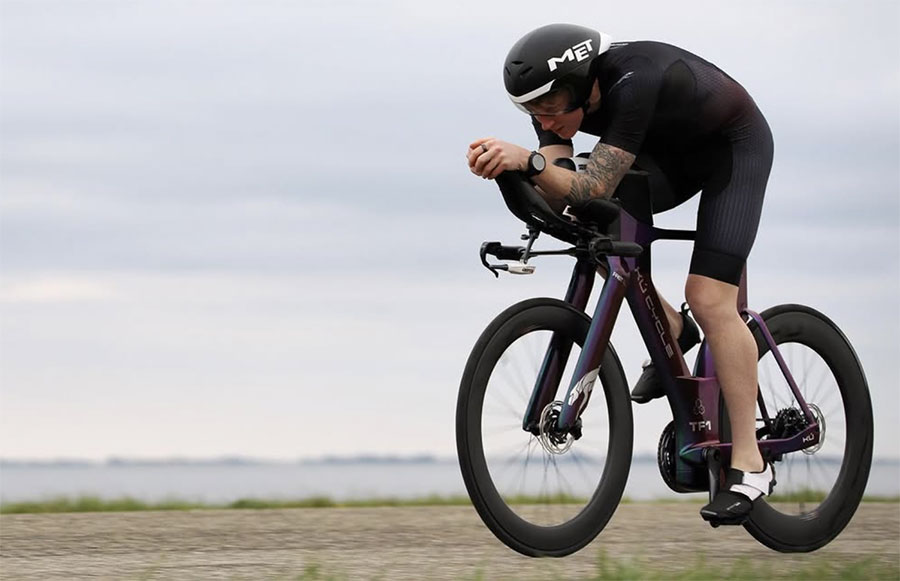From his first triathlon in 2016 to Ironman Age Group Champion and smashing out a 2:26 marathon in Barcelona, Josh is the definition of endurance. A dedicated Ironman athlete and coach, he’s gone from strength to strength — pushing both his physical limits and those of the athletes he now trains. With the London Marathon just around the corner, we caught up with Josh to talk about his evolution from weightlifter to triathlete, the mental strength it takes to compete at an elite level, and why consistency is his secret weapon.
Josh Holman Interview | Triathlon Coach | Lifestyle Pocket Guide
You took on your first triathlon in 2016 and quickly fell in love with the sport. What was it about triathlon that hooked you, and how did that first race experience shape your journey?
Coming from a weightlifting/bodybuilding background, I loved the challenge of something completely new and unknown. Bodybuilding is a very subjective sport — you’re chasing the approval of others — whereas triathlon and endurance sports are much more objective. You’re chasing personal bests or racing competitors in a fair and measurable way. Once I immersed myself in the sport, I quickly realised how helpful, welcoming, and encouraging the community was. That really sealed it for me.
For those unfamiliar with Ironman, can you explain what the race involves and what makes it such a challenging endurance event?
Often seen as the hardest one-day endurance event in the world, an Ironman includes a 2.4-mile swim, a 112-mile bike ride, and a full 26.2-mile marathon — plus transitions. But it’s not just the distance that makes it tough. The conditions vary wildly depending on the location — it could be swelteringly hot or freezing cold. You might face sea currents in the swim or steep climbs on the bike and run courses. All those extra variables add even more complexity on top of the sheer distance.
“Ironman is basically an eating contest on the move.”
You’ve achieved incredible personal bests, including an Ironman time of 8:53:37 and a marathon time of 2:29:53. What does it take — both physically and mentally — to compete at such an elite level?
The number one thing, in my opinion, is consistency. Anyone can have a great training day, but it’s those multiple days, weeks, months, and years of showing up that allow you to improve and compete at a high level. That consistency demands huge commitment, dedication, and the ability to keep going even when things aren’t going your way.
Many people see Ironman as an extreme sport. What kind of mindset and training approach does it take to push through the toughest moments in a race?
You’ve got to respect the distance and the time it takes to train for it. You have to go into your training block knowing that tough days are coming — and use them as opportunities to train your mind as well as your body. It’s also important to have a strong ‘why’ before committing to the race. That reason keeps you motivated both during training and on race day.

Time. A full Ironman requires a lot of training hours, and not everyone fully realises that at the start. I always ask new triathletes if they can realistically commit to the training volume required. From there, I build a good understanding of their weekly work and social commitments so I can create a realistic plan that sets them up for success.
Triathlon involves swimming, cycling, and running — each demanding a different skill set. Which of the three do you find most challenging, and how do you train for it?
Swimming is usually the most challenging for most people, even though it’s the shortest leg of the race. It’s a highly technical sport — swimming faster isn’t just about trying harder. It’s about how efficiently you move through the water. The type of swim also makes a difference — sea swims with strong currents, for example, require you to adapt and learn new skills. Like anything, it takes patience, discipline, and consistency.
Ironman races require strategic fuelling to sustain energy. What’s your nutrition strategy for race day, and do you have any go-to training meals?
Ironman is pretty much an eating contest on the move! You’re burning through so much energy over a long time, so you need to be constantly refuelling. I aim for around 120g of carbs per hour — mostly on the bike, using carb powders, energy bars, and gels. And here’s a cheeky hack: I always freeze a Snickers bar and keep it on my bike for a mid-race treat and morale boost!

For a long time, earning a pro race licence was my main goal. But over time, I lost sight of why I started triathlon in the first place. After a recent accident, my mindset shifted. I stopped thinking about going pro and focused instead on getting back to my best — and racing in Kona, which I’ve now done. As for what’s next… who knows?
Outside of training and racing, you love to travel. What’s been your favourite destination so far, and is there a dream race location you’d love to compete in?
Apart from Kona — the obvious one — I’d say Odense, Denmark. I loved the city, the vibe, and how passionate the locals are about health and exercise. The training facilities are amazing and often free to use. Plus, if you’re into baked goods like I am, Denmark is heaven!
Finally, what’s next for you? Any upcoming races, goals, or projects you’re excited about?
Since Kona, I’ve shifted my focus to the marathon — it’s always been my favourite discipline and the one I’m most naturally suited to. I recently ran the Barcelona Marathon in 2 hours 26 minutes, taking nearly 4 minutes off my PB. I know I’ve still got more in me. My ultimate goal is to run sub-2:18 and hopefully earn a spot on an elite start line somewhere!
Follow Josh on Instagram here.
Thank you to Josh for sharing his story, insight, and passion for endurance sport. His journey is a testament to consistency, purpose, and mental resilience — a perfect example of the uplifting stories we love to tell at Lifestyle Pocket Guide. Whether you’re running your first 5K or chasing an elite marathon goal, Ryan’s story proves that with the right mindset, anything is possible.


